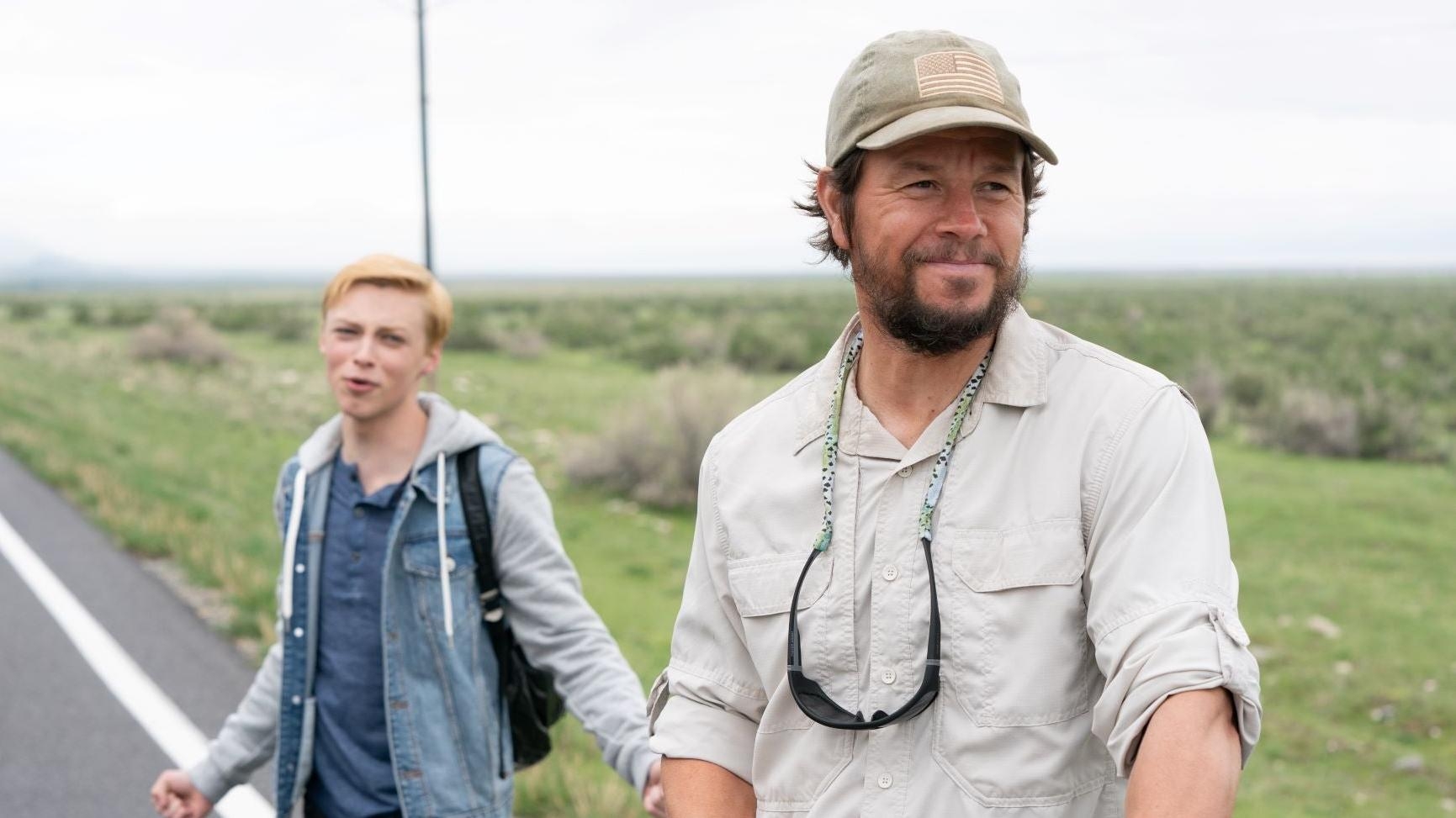Mark Wahlberg isn’t up to the emotional legwork of the anti-bullying drama Joe Bell
It’s certainly a choice to cast Wahlberg as a man marching across the country for tolerance

In Joe Bell, Mark Wahlberg plays a father on a pilgrimage—a cross-country walking tour meant to take him from Oregon to New York City entirely on foot, with stops along the way to speak out against bullying to whoever will listen. This is either very good or very bad casting. Given his history of hate crime, Wahlberg lands near the bottom (probably right below Mel Gibson) on the list of Hollywood stars who could believably preach, on screen or off, about the importance of accepting those different from you. On the other hand, there’s an element of atonement to the march for change embarked upon by the eponymous Joe Bell. He’s out there on the road at least partially to make up for his own intolerance. One must assume that no research or Method acting techniques were necessary for Wahlberg to get into character.
By Joe’s side on this long trek is his teenage son, Jadin (Reid Miller), who tags along to high school assemblies where his father clumsily (and quite briefly) speaks on the importance of accepting people for who they are. Jadin is gay, and it’s in his honor that Joe is marching, to raise awareness about the kind of relentless abuse the boy endured at his small-town school. Joe Bell cuts from scenes of the two bickering and bonding on the road to the events of several months earlier, when Jadin came out to his family and community. This flashback structure comes courtesy of screenwriters Diana Ossana and Larry McMurtry, who also penned the Oscar-winning adaptation of Brokeback Mountain—a more elegant drama about the burden placed on gay men just trying to live in a country hostile to their very existence.
This time, Ossana and McMurtry have looked to headlines, not fiction, for source material. Those who know what the real Bell family went through will immediately recognize the narrative subterfuge of the early scenes, which withhold information that a simple Google search would uncover. Without “spoiling” this tragic true story, let’s just say that it’s a debatably tasteful choice made for dramatic and emotional expediency—a “twist” that the movie occasionally risks implausibility to protect. For example, would a school principal really offer no context to an assembly of students for why this particular father is here to speak to them about the dangers of bullying? Though Joe is supposedly crossing America to educate and have empathetic discussions, the film devises only a handful of encounters for him—partially because it’s spending so much of its running time concealing the nature of what he might actually discuss with the strangers he meets.
As the flashbacks reveal, Joe is more casual than raging homophobe: He doesn’t reject his son outright, but he does wrestle with embarrassment about what the neighbors might think. There’s some nuance to this characterization that may be true to the real Joe Bell or just to plenty of parents like him; after all, not every father who fails their kid during the difficult coming-out period is a disapproving tyrant. Narratively, it feels at once convenient and inconvenient. While the movie escapes the tall task of engendering sympathy for a slur-spouting bigot, it’s also forced to tell a redemption story less clear-cut than someone having a full, transformative change of heart. Joe’s journey is about realizing that he could have been more supportive—a gradual epiphany that director Reinaldo Marcus Green (Monsters And Men) fails to effectively dramatize through montages set to sad country songs, unsteady handheld close-ups of Wahlberg’s grimacing face, and a load-bearing heart-to-heart with the local sheriff (Gary Sinise) Joe meets in Colorado, right before the film must get around to depicting the other tragedy that befell the Bells.
“It means well” is the faint praise one uses to damn a movie like this. Maybe it could have worked with a different star. Wahlberg, again, isn’t exactly unconvincing as a narrow-minded man trying to compensate for the prejudiced mistakes of his past. He looks most comfortable during early stretches of the movie, when it’s behaving like a buddy comedy between father and son; the actor’s comedic chops take a little of the cornball cringe out of a scene of the gruff Joe surprising Jadin by joining him on the chorus of “Born This Way.” But Wahlberg, delivering a performance that feels like community service, just isn’t up to driving a drama whose conflict is almost entirely internal; his default setting of sneering irritation is the wrong tool for the job. It leaves you wondering if this should have more fully been Jadin’s story, especially given the sensitivity of Miller’s turn. “I made it about me,” Joe Bell eventually climactically confesses of his son’s struggle. Joe Bell does the same, and if its heart is in the right place, its dramatic priorities are not.